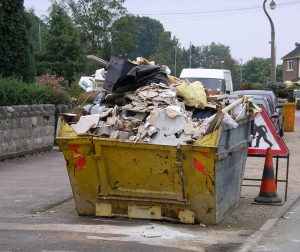Skip Bin Waste: What’s Permissible?
Skip bins offer a practical solution for managing large quantities of waste from various projects, including home renovations, garden clean-ups, and commercial activities. However, understanding what types of waste are permissible in a skip bin is essential for effective waste disposal and compliance with local regulations. This guide will provide a comprehensive overview of what can be placed in a skip bin and highlight materials that are not acceptable. Skip Bin Waste: What’s Permissible?
Categories of Permissible Waste
General Household Waste
General household waste encompasses a broad range of materials commonly found in homes. This category includes:
Food Waste: Leftovers, expired food, and other organic kitchen waste.
Packaging Materials: Cardboard boxes, plastic containers, and paper products.
Non-Hazardous Household Items: Broken furniture, old clothes, and general household debris.
It is important to ensure that the waste is clean and free from hazardous materials to facilitate easier processing and recycling.
Green Waste
Green waste, also known as organic waste, consists of biodegradable materials that can be composted. This type of waste includes:
Garden Waste: Grass clippings, leaves, branches, and small tree trimmings.
Plant Materials: Dead plants, flowers, and vegetable scraps.
Green waste should be kept separate from non-organic materials and contaminants such as plastic or metal to ensure effective composting.
Construction and Renovation Waste
Skip bins are ideal for managing construction and renovation debris. This category includes:
Wood: Untreated timber, wooden planks, and plywood.
Concrete and Bricks: Debris from demolition, broken bricks, and concrete fragments.
Tiles and Plasterboard: Leftover or broken tiles and plasterboard.
Proper segregation from hazardous materials is crucial, and it is essential to follow local regulations for disposal.
Materials That Are Typically Not Permissible
Hazardous Waste
Hazardous waste poses risks to health and the environment and requires special handling. Examples include:
Chemical Products: Paints, solvents, pesticides, and other chemicals.
Asbestos: A dangerous material requiring professional removal and disposal.
Batteries and Electronics: Contain toxic substances and should be disposed of through dedicated recycling programs.
Always refer to local guidelines for the proper disposal of hazardous materials to ensure safety and compliance.
Medical and Biohazard Waste
Medical and biohazard waste must be handled with care to prevent health risks. This includes:
Syringes and Needles: These should be placed in designated sharps containers.
Expired Medications: Must be taken to designated medication disposal sites or programs.

Skip Bin Waste: What’s Permissible?
Proper disposal of medical waste is essential for preventing health hazards and environmental contamination.
Large Appliances and Electronics
Large appliances and electronic items often contain hazardous materials and require specific disposal methods. These items include:
Refrigerators and Freezers: Contain refrigerants that need to be managed properly.
Televisions and Computers: Contain hazardous components like lead and mercury.
Many regions offer specialized e-waste recycling programs to handle these items responsibly.
Best Practices for Using Skip Bins
Sort Your Waste Efficiently
Sorting waste before placing it in the skip bin helps improve recycling efficiency and ensures compliance with disposal regulations. Separate general waste from green waste and hazardous materials to streamline the disposal process.
Adhere to Local Regulations
Regulations regarding skip bin use can vary by location. Always check with local waste management authorities to ensure you are following the rules and avoid potential fines.
Choose the Correct Size Bin
Selecting the right size skip bin for your project helps prevent overloading and additional charges. Consult with skip bin providers to determine the appropriate size based on the volume and type of waste you need to dispose of.
Avoid Overloading the Bin
Overloading a skip bin can create safety hazards and result in extra charges. Ensure that the waste is evenly distributed and does not exceed the top rim of the bin to facilitate safe and efficient disposal.
Conclusion
Understanding what waste is permissible in skip bins is crucial for effective waste management and environmental responsibility. By following these guidelines and ensuring proper waste separation, you can maximize the benefits of your skip bin service while contributing to a cleaner and more sustainable environment. For specific information on skip bin regulations and services in your area, consult with local waste management providers.
